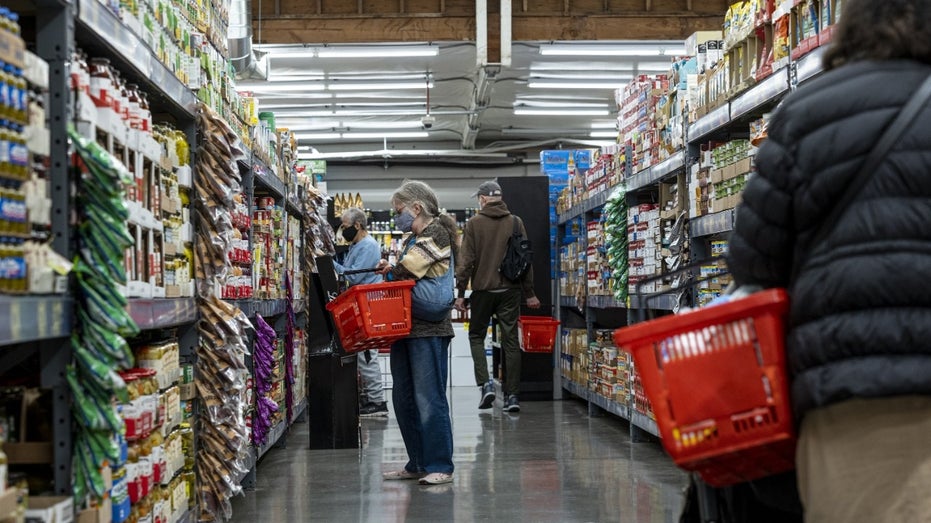Over half of Americans are dipping into savings or going into debt to cover expenses: NRF
72% of consumers in the lowest income category have to dip into savings, borrow money or are going into debt
More than half of Americans are dipping into their savings, borrowing money or going into debt just to cover their expenses, according to data from the National Retail Federation (NRF).
Consumers are facing a rise in costs across all categories from everyday goods to groceries and gas "as we continue to face the highest rate of inflation in decades," according to the nation's largest retail trade group.
In a recent nonprobability survey conducted by the NRF, 47% of consumers said they have been switching to cheaper alternatives when looking for household necessities as they try and navigate the challenging economic environment.
INFLATION HITS FRESH 40-YEAR HIGH IN MAY WITH CONSUMER PRICES SURGING 8.6%
Just under half of those surveyed, 45% of consumers, are looking for coupons or sales more often for these items.
Meanwhile, 41% of consumers are shopping at discount stores to find these everyday necessities.

Shoppers inside a grocery store in San Francisco, California, U.S., on Monday, May 2, 2022. (David Paul Morris/Bloomberg via Getty Images / Getty Images)
The data also showed that 40% of consumers reported that they were cutting back in other areas in order to afford these necessities.
Still, even with these cutbacks, the survey revealed that 58% of consumers are still having to go into debt, borrow money or use their savings to cover their expenses. About 72% of consumers in the lowest income category, earning less than $25,000 a year, are in the same boat, according to the data.
GET FOX BUSINESS ON THE GO BY CLICKING HERE
Only 40% of consumers say they earn enough to afford their expenses as inflation continues to outpace wage growth. Meanwhile, only 24% of consumers in the lowest income category say they can afford expenses.

A customer pumps gas into their car at a gas station on May 18, 2022 in Petaluma, California. (Justin Sullivan/Getty Images / Getty Images)
"It is not sustainable," NRF CEO Matthew Shay said in a statement. Shay said removing China tariffs "is the fastest way to alleviate some of the inflationary pressure in the U.S. economy."
CLICK HERE TO READ MORE ON FOX BUSINESS
According to Shay, these tariffs have driven up prices for American consumers and are costing the average family over $1,200 a year.





















